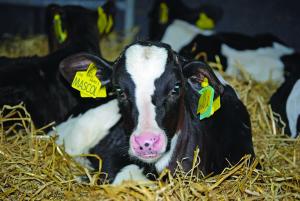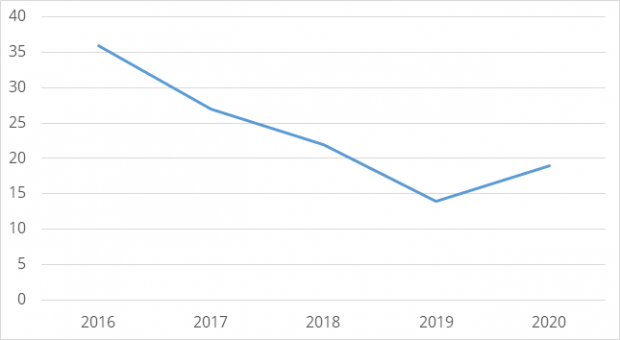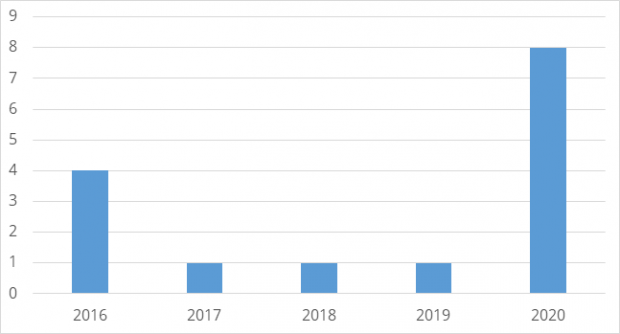The BVD eradication programme for N. Ireland entered its compulsory phase in 2016 and since then substantial progress has been made in eradicating the threat of BVD virus to cattle in NI.

BVD virus still remains active in N Ireland, however, and passive surveillance of carcases submitted for diagnostic post-mortem examinations to AFBI indicates that the threat posed by BVDV remains significant.
BVD is an economically important viral disease of cattle encompassing a wide range of clinical disease presentations including diarrhoea, infertility, abortion and foetal abnormalities.
Calves infected during early pregnancy which are not aborted and are born alive are persistently infected. These calves continually shed large amounts of virus and thus are a source of further infections to other cattle on farm or neighbouring farms.
A particularly important manifestation of BVD virus infection is depression of the immune system in infected animals thus reducing the ability of infected animals to effectively fight off other infections. BVD virus associated immunosuppression is of particular economic importance in outbreaks of pneumonia, especially in housed cattle.

Diagnoses of BVD viral infections in diagnostic carcase submissions to AFBI have fallen dramatically since the introduction of the compulsory phase of the BVD eradication scheme in N Ireland (see Figure 1).
However, BVD viral diagnoses in 2020 increased when compared to 2019 demonstrating that BVDV remains a significant threat to N Ireland herds.
BVD virus positive carcase diagnoses in 2020 were most frequently related to pneumonia cases, abortions, and cases of mucosal disease. Some proportion of this increase in BVD virus carcase positive cases in 2020 relates to increased use of PCR in diagnosing BVD virus infections, particularly in investigation of bovine respiratory disease. Almost 80% of the BVD virus positive cases occurred in the final quarter of 2020 from October to December, and of these final quarter positive cases, just over 46% were pneumonia cases. These results are unsurprising; they coincide with housing of cattle and autumn sales when the potential of infected cattle, be they persistently infected or acutely infected, to spread the infection to naïve cattle is greatly increased. Immunosuppression associated with the new infections which occur at this time plays an important role in outbreaks of pneumonia, facilitating the spread of other respiratory viruses and bacteria.
BVD virus positive aborted foetuses contributed 21% of the diagnostic BVD virus positive carcases at AFBI in 2020. Some of these abortion outbreaks were quite significant with multiple BVD virus positive foetuses being detected on individual farms as well as deaths in new born and young calves which were BVD virus positive. However, there has been a steady decrease in the number of cases of abortion due to BVDV diagnosed at AFBI each year since 2016 with 75% fewer cases of abortion due to BVDV recorded in 2020 compared to 2016.

Some large outbreaks of mucosal disease, severe enteritis and diarrhoea due to BVD virus were diagnosed in 2020. Some of the cattle involved in these outbreaks had been purchased. Consideration should be given to the BVD viral status of cattle when purchasing, as bought-in persistently infected cattle can spread virus with devastating effect when mixed with other cattle at pasture or on housing. It should also be remembered that some purchased cattle may be transiently infected, coming into contact with the virus for the first time immediately before or during purchase or transportation, and while these cattle will only transmit the virus for a limited time, if they are housed with other cattle or if they come in contact with other cattle in early pregnancy a serious outbreak may result.
It is recommended that calves which test positive for BVD virus by tissue tagging should be culled as soon as possible after their confirmation as persistently infected, as these calves pose a substantial risk to spreading infection further. Some farmers will choose to cull BVD positive calves immediately on receipt of the positive results, particularly if they have previously had confirmed BVD infection in the herd.
Good biosecurity is essential in maintaining freedom in herds currently free of BVD virus infection. Maintaining a closed herd if possible and good fencing and grazing management are keystones to prevention of new infections.
Farmers are encouraged to discuss whether or not to use a vaccination program as part of their efforts to prevent BVD infections with their veterinary surgeon.
Notes to editors:
AFBI is an arms-length body of DAERA delivering research and development, diagnostic and analytical testing, emergency response capability and expert scientific advice for DAERA and other government departments, public bodies and commercial companies in Northern Ireland, and further afield.
AFBI’s Vision is “Advancing the Local and Global Agri-Food Sectors Through Scientific Excellence”.
AFBI’s core areas:
- Leading improvements in the agri-food industry;
- Protecting animal, plant and human health;
- Enhancing the natural and marine environment.
Latest news
- AFBI issues Nematodirus warning – Spring 2025 11 April 2025
- Managing Nature Based Risks to the UK Economy and Opportunities for Green Finance 08 April 2025
- AFBI Hillsborough host AERA committee 27 March 2025
- The Omics Days Conference 27 March 2025
